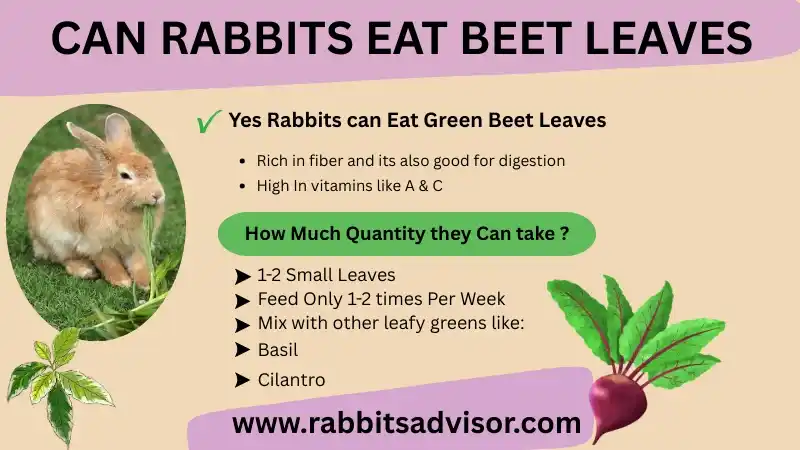Are you looking the information regarding ‘Can rabbits eat peas or not?‘ If yes, then stop. Here, you will get complete comprehensive guide about ‘whether rabbit can eat peas or not’ as well as other benefits and major risks of feeding peas to your bunnies and key guidelines on portion size.
In short, yes! You can feed peas to your loving pet bunnies, but in moderation with balanced diet. Peas are a delicious vegetable, so humans being also like to eat; because it is great source of various minerals, fiber, and vitamins that are most useful for a bunny’s health.
Introduce them gradually into your rabbit’s diet to avoid digestive upset, and remember to offer a balanced diet that includes hay, fresh vegetables, and pellets.
Can I Give Peas to My Bunny?
Sure! You can feed peas to your bunny, but it is prefer in moderation. Different types of peas, including sugar snap peas, snow peas, and green peas, are safe for rabbits to eat and can allow them with essential nutrients like fiber and vitamins.

But, sweet peas should be avoided; because they are most dangerous to bunnies. Whenever, you want to offer peas to your bunny, then must be fresh, clean, and free from any pesticides or additives.
Nutrition Facts and Stats
There are the breakdown nutrition facts and stats of peas for your loving bunnies, you can check them:
Also Read: Can Rabbits Eat Potatoes? Feeding Guide
| Nutrient | Amount per 100g |
|---|---|
| Calories | ~81 kcal |
| Carbohydrates | ~14.5 g |
| Fiber | ~5.1 g |
| Protein | ~5.4 g |
| Fat | ~0.4 g |
| Vitamin A | ~765 IU |
| Vitamin C | ~40 mg |
| Potassium | ~244 mg |
| Magnesium | ~33 mg |
| Sugar | ~5.7 g |
Benefits and Dangerous of Peas for Bunnies
Before feeding peas to your rabbits; you must be known about their benefits and major risk for bunny’s health, below shown each one:
Benefits Are
Nutritional Content: Peas are packed with nutrients beneficial to rabbits, including fiber, protein, vitamins (such as vitamin A and vitamin C), and minerals (such as potassium and magnesium).
Variety in Diet: Adding peas to a rabbit’s diet provides variety and can help prevent boredom. With allowing the diverse range of meals helps to promote overall health and satisfies their natural foraging instincts.
Digestive Health: The fiber content in peas can aid in digestion and help prevent gastrointestinal issues like stasis and blockages.
Hydration: Peas have a high water content, which can contribute to a rabbit’s hydration, especially if they’re not consuming enough water from other sources.
Low in Fat: Peas are low in fat, making them a healthier treat option compared to some other treats that may be higher in fats or sugars.
Dangers Are
High Sugar Content: Peas contain natural sugars, which can be problematic if fed excessively. High sugar intake can pose to obesity, dental problems, and gastrointestinal upset in bunnies.
Portion Control: Feeding too many peas can lead to an imbalance in a rabbit’s diet and may contribute to weight gain. It’s essential to offer peas as treats in moderation.
Digestive Upset: Some rabbits may have sensitivities to certain vegetables, including peas. Introducing peas gradually and monitoring for any signs of digestive upset is crucial.
Choking Hazard: Whole peas or large pieces can pose a choking hazard, especially for smaller rabbits or those prone to eating too quickly. Peas should be appropriately sized or mashed to reduce this risk.
Quality Concerns: Peas should be fresh and free from pesticides or other contaminants. Poor-quality peas may cause digestive issues or other health problems in rabbits.
How Can I Test that My Bunnies Likes Peas or Not?
Testing whether your bunny likes peas can be done through a simple process of observation and offering the peas in a safe and controlled manner. Here’s how you can do it:
Also Read: Can Rabbits Eat Pineapple? Feeding Guide by Expert & FAQs
Introduce Peas Gradually: If your rabbit hasn’t had peas before, start by offering a small amount, such as a single pea or a small portion of mashed peas. This allows your bunny to get accustomed to the new food without overwhelming their digestive system.
Observe Body Language: When you offer the peas to your bunny, observe their body language and behavior. Signs of interest or enjoyment may include sniffing the peas, eagerly approaching them, or actively consuming them.
Monitor Eating Behavior: If your bunny begins to eat the peas, pay attention to how they eat them. Do they eat them eagerly or hesitantly? Are they chewing them thoroughly, or do they seem to enjoy the taste?
Note Reactions: Watch for any immediate reactions after eating the peas. Signs of enjoyment may include contented behavior, including relaxed body posture or purring. On the other hand, if your bunny rejects the peas or shows signs of discomfort (e.g., refusing to eat, turning away, or exhibiting signs of digestive upset), they may not enjoy them.
Offer Peas Multiple Times: Sometimes, it may take a few tries for a rabbit to develop a taste for a new food. If your bunny doesn’t seem interested initially, try offering peas on different occasions to see if their preference changes over time.
Respect Preferences: Just like humans, rabbits have individual tastes and preferences. If your bunny doesn’t seem to enjoy peas, don’t force them to eat them. Instead, you can allow the variety of other rabbit-safe vegetables to make ensuring they have a balanced and enjoyable diet.
How Many Peas Can I Feed My Rabbit?
Peas should be considered a treat rather than a staple food in a rabbit’s diet. Here are some general guidelines for how many peas you can feed your rabbit:
Also Read: Can Rabbits Eat Iceberg Lettuce? “Is Safe or Not”
Portion Size: For adult rabbits, it’s generally recommended to limit pea intake to about 1-2 tablespoons per serving. This translates to roughly 5-10 individual peas.
Frequency: Peas should be offered only occasionally, such as a few times per week at most. They should not make up a significant portion of your rabbit’s daily diet.
Consideration for Size and Age: Smaller rabbits or younger rabbits may need smaller portions of peas. Additionally, rabbits with specific health conditions or dietary restrictions may need adjustments to their pea intake.
Balance with Other Foods: Peas should be part of a balanced diet that includes a variety of fresh vegetables, high-quality hay, and a small amount of rabbit pellets formulated specifically for their nutritional needs.
Monitor for Digestive Issues: After offering peas to your rabbit, monitor them for any signs of digestive upset, such as diarrhea or changes in stool consistency. If you notice any adverse reactions, reduce or eliminate peas from their diet and consult with a veterinarian if necessary.
What Should I Do, If Bunnies Eat Peas Too Much?
If your bunnies eat too many peas, you should monitor them for any signs of discomfort or digestive issues. If they appear uncomfortable, stop eating, or show symptoms like diarrhea or constipation, it’s crucial to consult a vet promptly.
Providing fresh water and hay can help, but if the symptoms persist or worsen, seeking professional veterinary advice is essential. Additionally, limiting other low-fiber and high-carbohydrate foods until your rabbits’ digestive systems normalize is recommended to prevent further issue
Guidelines for Feeding Peas to Bunnies
Here, we will show you some remarkable guidelines for feeding peas to bunnies:
Also Read: Can Rabbits Eat Green Beans? Complete Facts & FAQs
Type of Peas: Fresh or frozen peas are safe for rabbits, while canned peas should be avoided due to added salt and preservatives.
Quantity: Feed your rabbit about a teaspoon of peas per two pounds of its body weight, ensuring moderation and a balanced diet.
Frequency: Peas should not be fed every day; space out the servings and rotate them with other vegetables to provide a varied diet for your rabbit.
Monitoring: After feeding peas to your rabbit, monitor its reaction for any signs of discomfort or digestive issues. If symptoms like diarrhea or constipation occur, consult a vet promptly.
Choking Hazard: Cut snap peas into small, bite-sized pieces to prevent choking incidents, as rabbits have small throats and can easily choke on large pieces of food.
Variety: Mix snap peas with other bunny-friendly veggies to ensure a diverse range of nutrients in your rabbit’s diet.
Sugar Content: While snap peas contain some sugar, feed them in moderation to prevent weight gain, dental problems, and digestive issues in rabbits.
Serve in Moderation: Offer snap peas as an occasional treat rather than a daily snack to prevent upsetting your rabbit’s delicate digestive system.
Alternatives to Peas for Your Rabbits
Here are some alternative vegetables you can feed to your rabbits instead of peas:
- Leafy greens (e.g., romaine lettuce, kale, spinach)
- Bell peppers (red, green, yellow)
- Carrots (in moderation due to sugar content)
- Broccoli florets
- Cucumber slices
- Celery sticks (remove strings to prevent choking)
- Parsley
- Dandelion greens (make sure they’re pesticide-free)
- Cilantro
- Radish tops
- Brussels sprouts (fed in moderation)
- Zucchini slices
- Basil leaves
- Mint leaves
FAQs (Frequently Asked Questions)
Can Rabbits Eat Pea Pods?
Yes! Bunnies can eat pea pods, but in moderation. Pea pods are safe and nutritious for rabbits, providing and can help keep a rabbit’s teeth healthy. However, they contain more sugar than is ideal, so it’s recommended to limit the quantity to one or two pods occasionally. Pea pods should be washed before feeding.
Can Bunnies Eat Sugar Snap Peas?
Yes! Bunnies can eat sugar snap peas. These peas are most beneficial for rabbit’s health, offering that essential vitamins and fiber. However, like with any new food, introduce them gradually into your rabbit’s diet to ensure they tolerate them well, and offer them in moderation to prevent digestive issues due to their sugar content.
Can I Feed My Rabbit Snow Peas?
Of Course! You can feed your rabbit snow peas, including their leaves and stems, as they are not harmful. Snow peas are a variety of peas with edible pods that are commonly cultivated during cool seasons.
Can We Give Green Peas to Rabbits?
Yes! Rabbits can eat green peas in moderation. Green peas are safe for rabbits and provide essential nutrients such as fiber and protein. However, offer them sparingly as treats due to their starch and sugar content. You can introduce new foods gradually and keep monitoring your rabbit for any symptoms of digestive upset.
Can Rabbits Eat Sweet Peas?
No! Rabbits should not eat sweet peas as they are toxic to them. Sweet peas consist compounds that can be harmful to rabbits, posing to symptoms like as lethargy and refusal of food. If a rabbit consumes sweet peas, it’s crucial to seek veterinary assistance promptly to address any potential toxicity.
Can Rabbits Eat Frozen Peas?
Yes! Rabbits can eat frozen peas, but it’s best to thaw them before offering them to your rabbit. Frozen peas can provide a cool treat for rabbits in hot weather. However, like with any pea, offer them in moderation as part of a balanced diet to avoid digestive issues.
Summing Up
Now, we hope that you have taken fully knowledge about your question ‘Can Rabbits Eat Peas or Not?’ so peas are not toxic, if they are consumed in moderation. If your bunnies are taking enjoy in eating peas, and then you can feed them as an occasional treat. Please, don’t try to give peas for your pet rabbits at regular basis; otherwise they will get to suffer from digestive problems.
Also Read: Can Rabbits Eat Cucumbers? Complete Guide with FAQs
If you have any experience, tips, tricks, or query regarding on this? You can drop a comment!
Have a Nice Day!!







